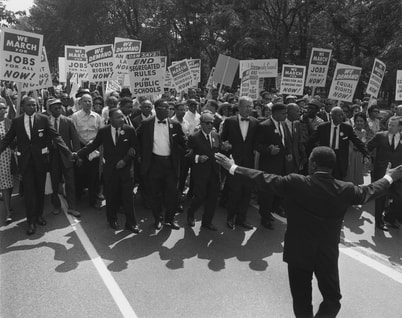Democracy Newsletter: September 2023 By Steve Zolno  Source: Vecteezy Source: Vecteezy Recently a Georgia teacher was fired by her board of education for reading a book to her fifth-grade class that the board considered controversial. The book was a popular children’s title: My Shadow Is Purple. A grandmother of one of the students approved of the firing, stating that it is up to parents, not teachers, to teach “cultural fads” to their children: “I want the parents to be parents and the teachers to teach.” (“Georgia teacher fired after reading book on gender to fifth-grade class,” Adela Suliman, The Washington Post, August 19, 2023.) Book banning in schools and libraries is increasing, with over 1,600 known incidents last year alone. (“Attempts to Ban Books are Accelerating and Becoming More Divisive,” Alexandra Alter and Elizabeth Harris, The New York Times, September 16, 2022.) The nature of what is taught also is being challenged. In Florida, current policy requires that children be taught about the “benefits” of slavery. (“Protesters Decry Erasure, Rewriting of Black History, from Florida Schools,” Democracy Now, August 17, 2023.) In Arkansas, advanced placement African American studies now are banned in high schools. (“Arkansas Orders Credits be Withheld for AP African American Studies in High School,” Democracy Now, August 16, 2023.) These and similar curriculum changes are increasing in many states. They add a new urgency to the perennial argument about what is teaching and what is indoctrination. Taking a step back and considering the purpose of education in a democracy might provide us a clearer perspective about the direction we want education to take. None of us would disagree that it is essential for children to learn basic skills to navigate life. Nor would we argue against vocational training required to move students toward their chosen career. But beyond that, what are the skills they need to maximize their ability to succeed? Our world is one of diverse individuals. No two of us are the same. In our schools, workplaces, and everyday lives, we encounter a wide variety of people with whom we need to work toward common solutions to the problems that confront us. We want recognition and acceptance for who we are, but many people from all backgrounds believe they never receive the recognition that is their due.  Source: Wikimedia Source: Wikimedia In the 1960s, segregation was a dominant practice in the South. Homosexuality was considered a mental disease in the US, a view even promoted by mainstream psychology. TV programs — including commercials — were dominated almost entirely by the presence of straight white Americans. This was the model unthinkingly promoted by our media and educational system. There has been a growing awareness of the horrors perpetrated upon those who didn’t fit the predominant idea of what an American should look and act like, and a greater understanding of what it means to be human slowly has awakened in this country. Many people have begun to realize that the value of human beings does not depend on their race, religion, sexual orientation, or other personal factors, but that encountering people as the unique individuals they are benefits those on both sides of the encounter. Unfortunately, many people still judge others based on their personal characteristics rather than their value as an individual. Yet an ability to work and live with others remains an essential element of success in all areas of life, unless we measure success by an ability to impede others based on what we don’t like about them. But those who do this are distracted from focusing on their own progress and success. Real education enables us to expand our horizons — to understand others and the world better and engage with them as they are, not as we imagine them to be. Progress in every area of knowledge — from science to geography to math to psychology — depends on encountering and learning to understand the world as we find it. The same principle applies to our willingness to understand individuals who compose much of the world with which we engage every day. It is not up to me to determine how or who you should be. If our approach is one of openness to who and what we encounter, our model of the world will expand as will our knowledge and wisdom. For those who believe that education is preparation for life, learning is an ongoing process of continually expanding our horizons. We strive to understand the mistakes of the past so we don’t continue making them in our own lives and times. Real education embraces the diversity and beauty of the world and people that surround us. This is the most essential element in our ability to function more effectively in every area of our lives. (For further reference, see In Defense of a Liberal Education by Fareed Zakaria, 2015, Norton Press, or my 2018 talk at the Commonwealth Club: “Do We Learn from History?”) Steve Zolno graduated from Shimer College with a bachelor’s degree in Social Sciences and holds a master’s in Educational Psychology from Sonoma State University. Steve has founded and directed private schools and a health care agency in the San Francisco Bay Area. He is the author of six books Please recommend this newsletter to people who you think might appreciate it. If you want to be added to the email list to receive each new newsletter when posted, fill out our contact form and check the box just above the SUBMIT button. You may also use that form to be removed from our list.
Visit our Books page for information about purchasing The Future of Democracy, The Death of Democracy, Truth and Democracy, and Guide to Living In a Democracy. Click ↓ (#) Comments below to view comments/questions or add yours. Click Reply below to respond to an existing comment.
0 Comments
Your comment will be posted after it is approved.
Leave a Reply. |
 5th edition now available 5th edition now available
Steve ZolnoSteve Zolno is the author of the book The Future of Democracy and several related titles. He graduated from Shimer College with a Bachelor’s Degree in Social Sciences and holds a Master’s in Educational Psychology from Sonoma State University. He is a Management and Educational Consultant in the San Francisco Bay Area and has been conducting seminars on democracy since 2006. Archives
July 2024
Categories |
 RSS Feed
RSS Feed